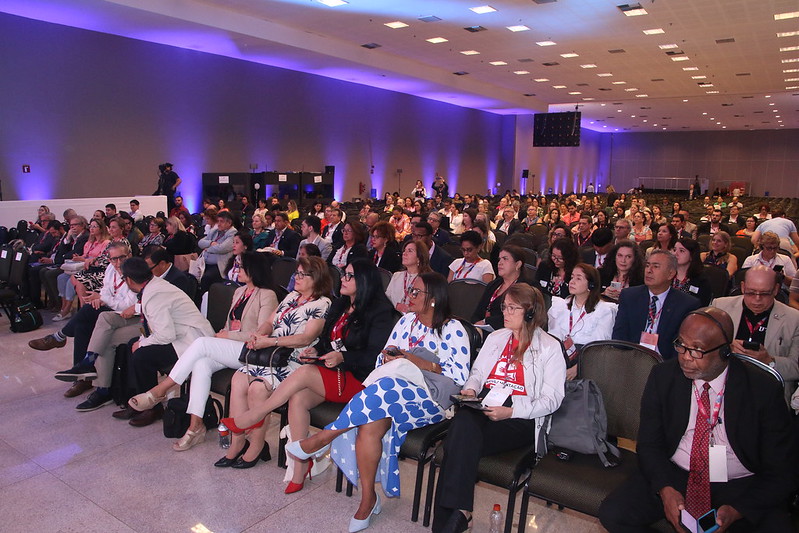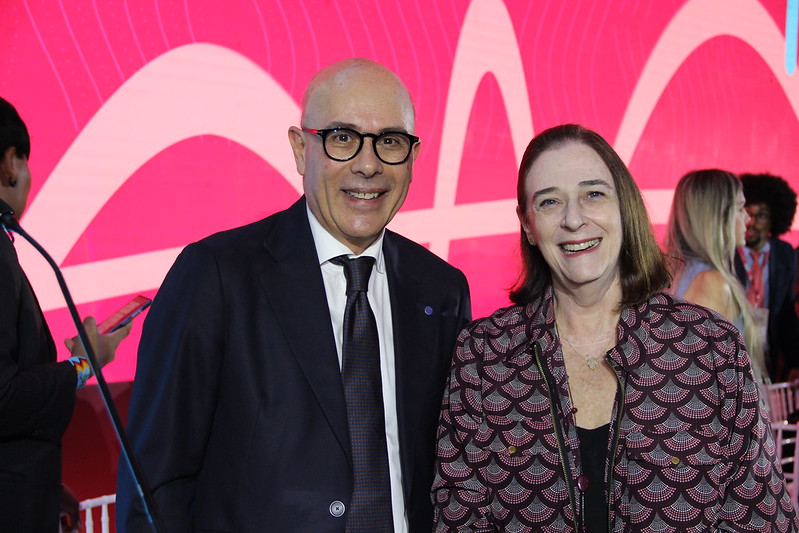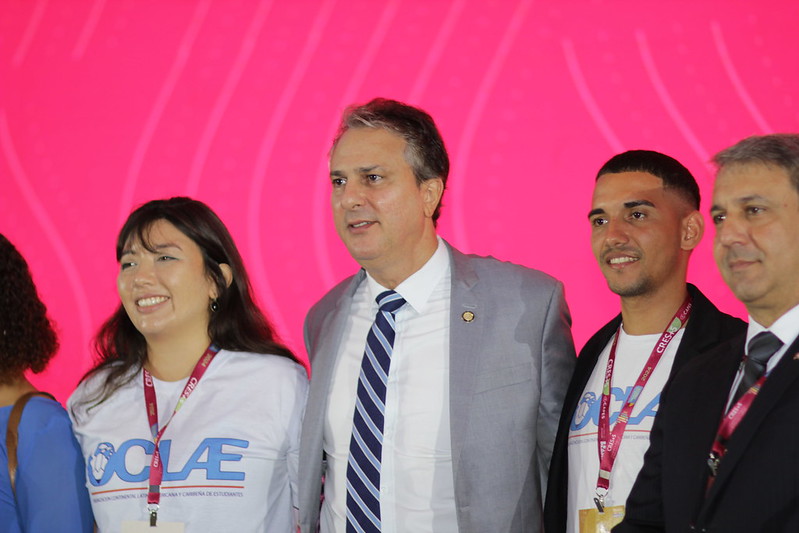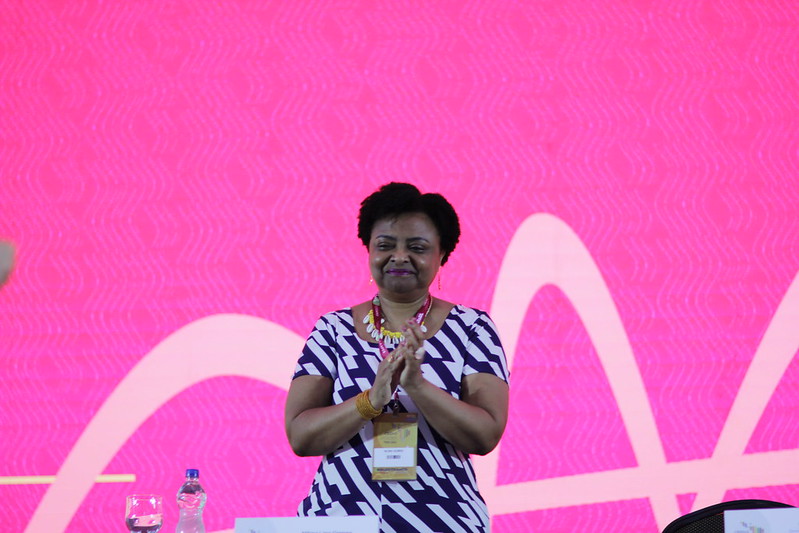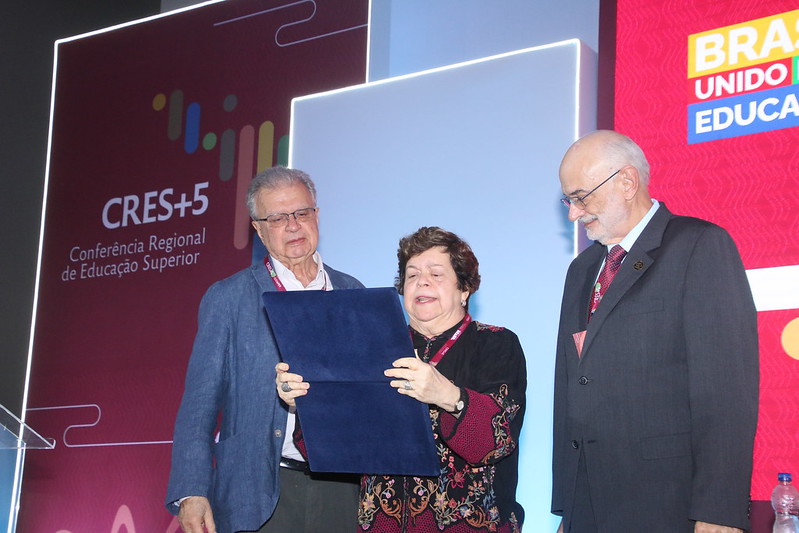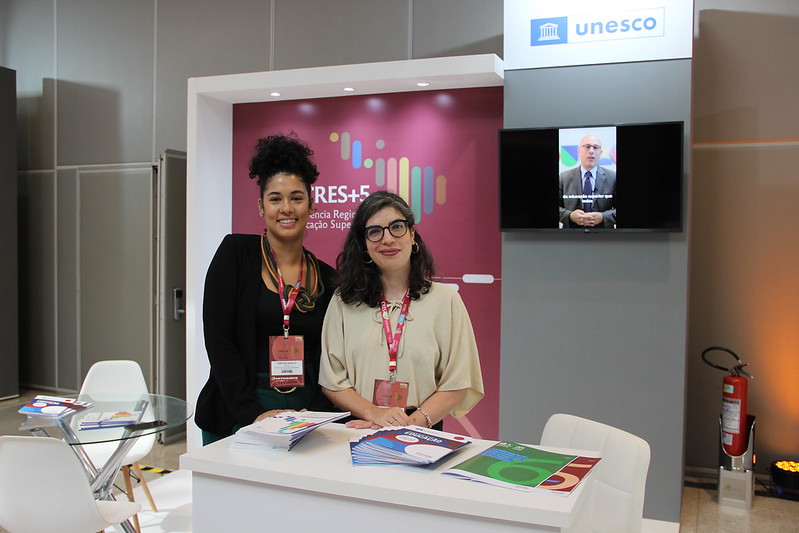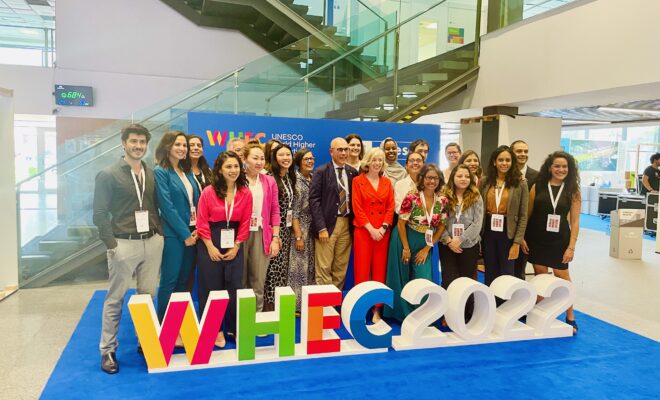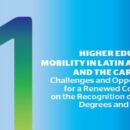CRES+5 Declaration: commitment to democratisation and universalisation of higher education as an engine of development
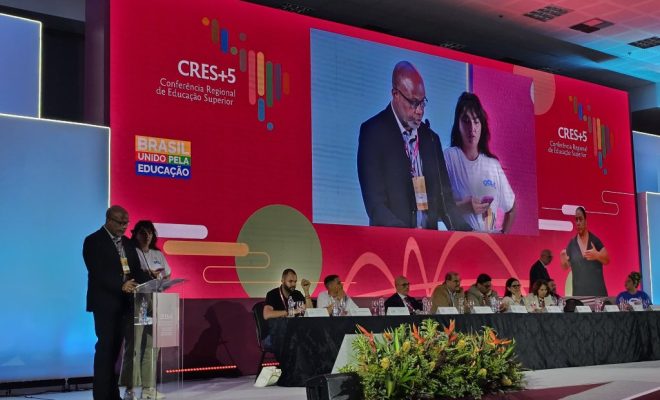
With the participation of the Ministry of Education (MEC) and the autarchies linked to the Ministry, the CRES+5 – follow-up meeting of the III Regional Conference on Higher Education in Latin America and the Caribbean (CRES) – took place in Brasilia (DF) on March 13th, 14th and 15th. The goal was to evaluate and highlight the progress of higher education in Latin America and the Caribbean since the III CRES, held in Córdoba (Argentina) in 2018. The CRES+5 was attended by nearly 1,200 people from 26 countries and indicated the commitments that will guide the next regional conference, to be held in 2028.
Present at the opening table of the event were Brazil’s Secretary of State for Education, Camilo Santana; the executive secretary of MEC, Izolda Cela; the president of the Coordination for the Improvement of Higher Education Personnel (Capes), Denise Carvalho; director of UNESCO’s International Institute for Higher Education in Latin America and the Caribbean (UNESCO IESALC), Francesc Pedró; director of the United Nations Educational, Scientific and Cultural Organization (UNESCO) in Brazil, Marlova Noleto; president of the Latin American and Caribbean Space for Higher Education (ENLACES), Oscar Dominguez; rector of the University of Brasilia (UnB) and president of the National Association of Directors of Federal Higher Education Institutions (Andifes), Marcia Abrahão the President of the Continental Organization of Students of Latin America and the Caribbean (OCLAE), Miguel Ángel Machado Rojas; OCLAE’s representative in Brazil, Amanda Harumy; President of the National Union of Students (UNE), Manuella Mirela; and the President of the National Association of Graduate Students (ANPG), Vinícius Soares.
Symposia for each of the 12 thematic axes, 2 conferences, 2 round tables and 1 policy forum on higher education were included in the event. The main act was the reading of the final declaration of the CRES+5.
CRES+5 Declaration
The document reaffirms the need to ensure higher education as a universal human right and a social public good that must be fully guaranteed by the States. It also points out the need to fight against the commodification and privatization of education systems at all levels, calling for the promotion of controls to prevent this trend. The declaration also emphasizes the strategic alignment of higher education in the region with the Sustainable Development Goals (SDGs), understood in a comprehensive and complementary manner.
Furthermore, the document states that to defend higher education, it is necessary to defend democracy – and in order to do so, it is essential to defend University. Higher education must contribute to repairing the historical debt that contemporary societies and states owe to indigenous and Afro-descendant people; educate against racism, racial discrimination and all forms of intolerance; and encourage policies that promote equal opportunities for women and members of the LGBTQIA+ community.
Commitments – The document exposes the need for commitment to equity; lifelong learning; and the strengthening of transformative and emancipatory action. In this context, it seeks to value higher education as an inalienable right to achieve sustainable development, a culture of peace and non-violence, integral health and the formation of citizens aware of their duties and responsibilities.
Strategic objectives indicated by the declaration for the CRES 2028 are the democratization of knowledge and the universalization of higher education to guarantee the sovereign development of Latin America and the Caribbean, as well as the consolidation of democratic systems of government.
The role of students as the central axis of the work, regional integration and a decolonizing perspective as the center of Latin American and Caribbean consciousness are also among the key points addressed in the document.
This declaration also announces higher education institutions as a valuable space for the construction of a promising future based on full citizenship, social justice, sustainable development and regional integration.
MEC Communication Office with information by Sesu an UNESCO IESALC
RELATED ITEMS
